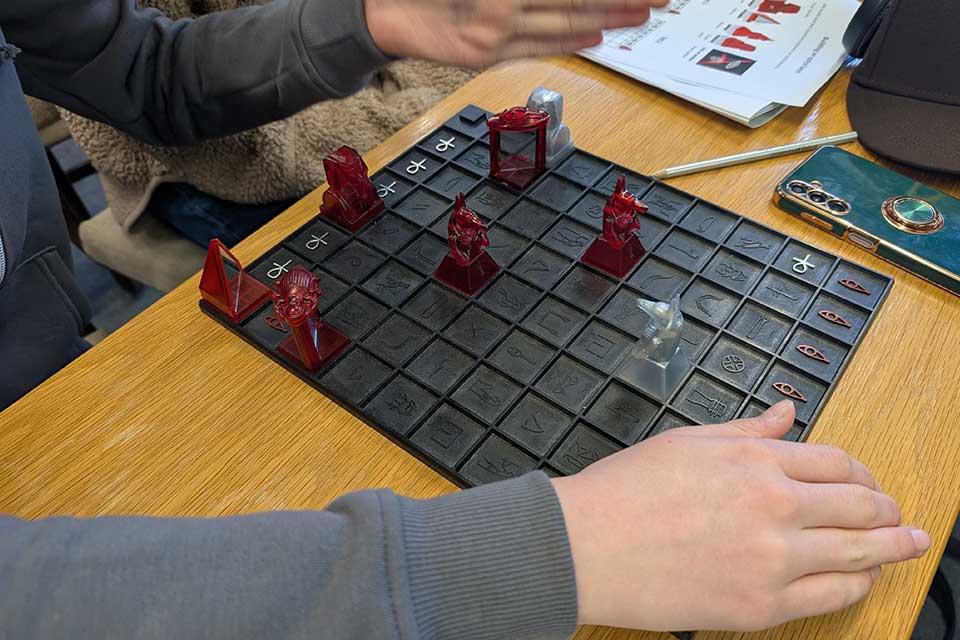A future that integrates and leverages quantum technology is being created right now. At Oxford, not only are researchers in the Department of Physics and beyond working on it but events and activities across the department are ensuring that people of all ages get to know about how quantum will potentially impact their lives.
Our programme of activity chimes with UNESCO’s International Year of Quantum Science and Technology 2025 whose mission is to invite scientists, educators and citizens worldwide to explore and celebrate quantum innovations.
Quantum for beginners
For the Department of Physics, the focus on quantum kicked off with an introductory taster session, Quantum in a Flash, that took place in April. It was an evening of five quick-fire 15-minute talks by speakers from academia, industry and government who shared their own work, experience and insights. The talks were followed by a panel discussion with the early-career researchers working at the forefront of quantum science; to conclude, the audience were able to put their questions to them.
An alternative intro to quantum, Quantum in Pictures, took place in May when Dr Hamza Waseem used pictures alone – an approach developed by Bob Coecke – to introduce a new way to understand quantum physics. The pictures are not mere illustrations rather they form a new mathematical language specifically designed to describe quantum processes and computation – yet, they are intuitive enough to make quantum theory accessible to everyone.
From our labs to your lives
Also in May, some 100 people came to the Department of Physics’ annual open-door event, Lab to Life. Visitors to this year’s event were able to tour the department’s specialist quantum labs as well as listen to talks on quantum computing and on quantum materials. There were also opportunities to get hands-on with quantum technologies as researchers demonstrated a range of phenomena: using spectroscopes to understand the quantised nature of energy within atoms; showing the ion traps that are being developed here in our labs; seeing the light and mirror installation to understand how researchers are generating remote entanglement of qubits to enable scalable quantum networks.
The programme of events continues in July as Oxford takes part in the Royal Society’s Summer Science Exhibition 2025. The free annual event showcases the latest research from across the UK and runs from 1-6 July. The Department of Physics will be joining forces with other quantum leaders to deliver the National Quantum Computing Centre’s ‘Quantum Zone’ at the exhibition. Visitors will be able to try out hands-on demos including our interactive VR simulation that shows how the technique of evaporative cooling can produce the extremely cold temperatures required for many next-generation quantum sensors.
Working with schools
For Oxfordshire schools, the Department of Physics has developed a brand new engaging workshop for Key Stage 3 students: how to build a quantum computer. A desktop demonstration will show how ions are trapped by electric fields and manipulated with lasers – schools can contact the Department of Physics to find out how to book the touring workshop that has been really positively received to date.
Dr Sian Tedaldi, Outreach Programmes Manager, is coordinating the programme of activity with Dr Sebastian Saner and Dr Oana Bazavan; she comments: ‘It has been fantastic to work with the researchers across quantum technology to develop the programme. They have shown such enthusiasm and innovation in how they engage the public. We have learnt a lot and it is helping to shape the culture of engagement within this exciting field. There is more to come so do sign up to our mailing lists and check the website for all the latest events.’
The programme of activity has been funded by grants from the University of Oxford as well as from the outgoing and incoming quantum hubs.

